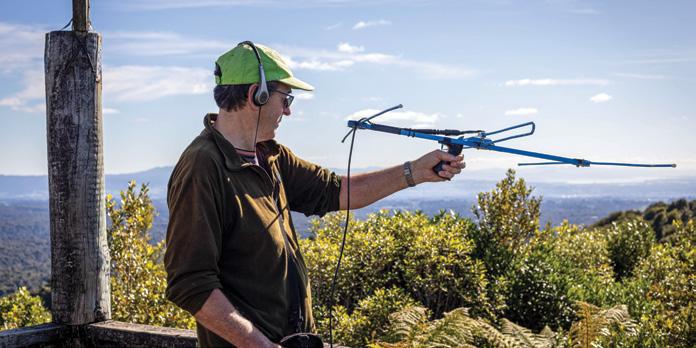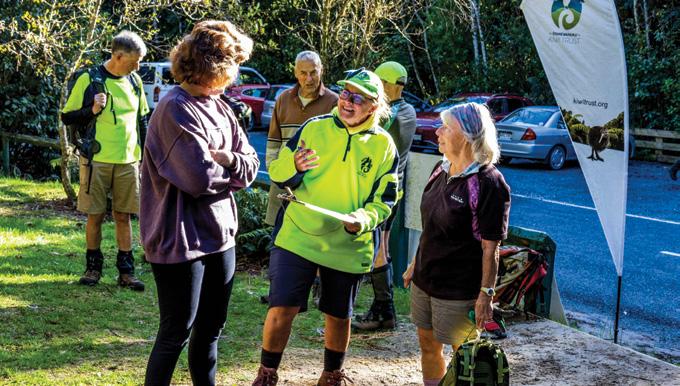
3 minute read
Ōtanewainuku Kiwi Trust
Ōtanewainuku Kiwi Trust is a community-based conservation trust formed in 2002 by Te Puke Forest and Bird, along with other community members concerned about the decline of North Island brown kiwi in the Ōtanewainuku Forest.
We work to protect kiwi, along with other native animals and plants within the forest, through integrated pest management control. We have successfully reintroduced kōkako and kiwi into Ōtanewainuku Forest and actively advocate for the conservation of kiwi and the forest by engaging with schools and the wider community.
While our primary focus is on kiwi and kōkako, other animals including bats, lizards and invertebrates benefit as well. The trees, shrubs and other plants are thriving because fruits and seeds can complete their vital life cycles.
GREAT RESULTS IN 2023
In 2023 it was amazing to get a 0% for rats on our post-toxin monitoring. We used one round of Pindone with 500g in 2023.
We believe these results were due to a few factors. Prior to using Pindone we had placed sentinel possum traps at a ratio of 1 per 4.5ha and serviced them at least once a month. This was effective in controlling the number of possums entering from neighbouring properties, resulting in low possum numbers within Ōtanewainuku Forest. When numbers are low, there is little to no possum interference with the Pindone, so another benefit is that less bait is needed.
We also altered the design of the bait station floor by attaching rope, long enough to reach the ground below. This made rat access into the bait stations easier, resulting in a higher number of rats eating the toxin.

Throughout the year we saw and heard lots of kōkako, so we are looking forward to our 2024 census results.
And a highlight was Rohi, a two-year old kiwi, who surprised us with his first incubation of two eggs. We are pleased to announce both have now hatched.
Three years ago we lost contact with Cosmos, a six-year-old male kiwi, after his transmitter had dropped off. We are delighted to report we found him in 2023. He is now back wearing his new transmitter.
HOW YOU CAN HELP US
We welcome new volunteers. Come to one our forest workdays held on the second Sunday of each month. Simply register your interest on our website and we will send you full details.
Strong support, from our sponsors and donors, means we can carry on this vital conservation work for the community.










